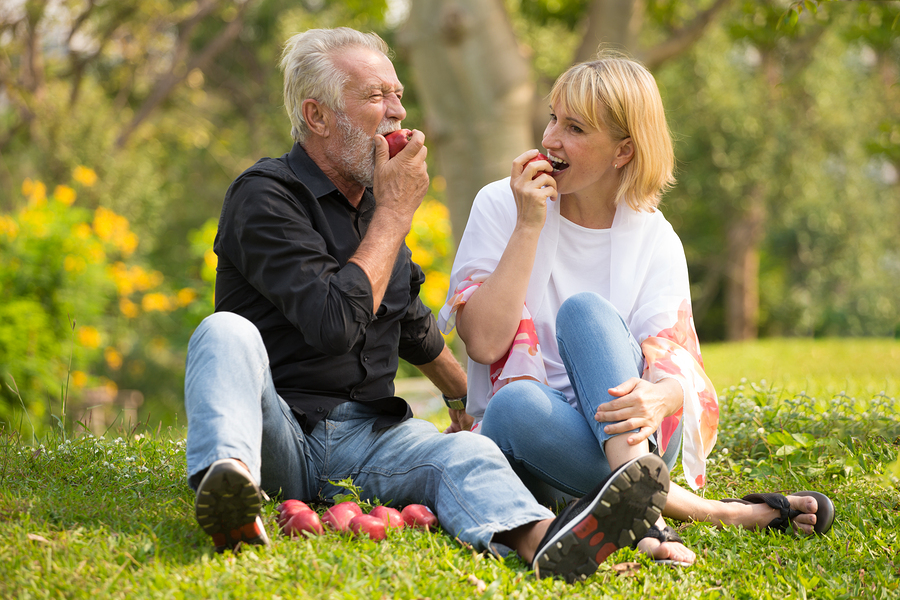The benefits to becoming a vegan
Veganism is the term for a diet that eliminates all animal-derived ingredients such as meat, dairy, eggs and honey, including products that come from or use animals in the process. In other words, vegans enjoy what we call a plant-based diet.
Vegans do not consider veganism as a diet; they think of it as a way of living. And this ‘way of living’ is growing. It is estimated that by 2025 the number of vegans and vegetarians will make up a quarter of the British population.
3 main reasons people choose to go vegan
For environmental reasons: A large amount of energy, land and grain is needed to raise animals for us to eat. Deforestation, loss of habitat and even species extinction have been linked to producing animals for market. And by-products of animal agriculture also contribute to polluting the atmosphere. It is believed, therefore, that a plant-based diet is more sustainable for the environment.
To improve health: Eating an increased amount of fruit and vegetables will lead to an increased consumption of beneficial vitamins such as A, C and E, along with fibre, antioxidants, potassium and magnesium. So following a plant-based diet can benefit our bodies in many ways, having a positive effect on our health and wellbeing. It is, however, important for vegans to ensure that they replace the vitamins and minerals they would otherwise get from consuming meat and dairy products so as to reduce the chance of deficiency.
For ethical reasons: Some people believe that slaughtering millions of animals every day just so we can eat meat is unethical. They believe that animals suffer however ‘humanely’ they are slaughtered, and so in order not to support this they turn to veganism.
What won’t vegans eat?
In a nutshell, vegans will not consume food, or ingredients that are derived from an animal. So, this would be all meat and poultry, seafood, dairy products and eggs, bee products, gelatine, some beers and wines that include egg white or gelatine, deep fried foods (as the batter can include egg) and casein, lactose and whey (these are derived from milk and are found in many foods such as some bread and crisps).
What will vegans eat instead?
It is important for those adopting a vegan lifestyle to ensure they are getting all the vitamins and nutrition they need from their plant-based diet and all food groups are covered. In particular, it is important that calcium rich foods should be included such as almonds, figs and fortified plant milk to support healthy bones.
So, a healthy plant-based diet should consist of the following:
- Vegetables and fruit: Vegetables make up a staple part of the vegan diet and can be enjoyed in lots of different ways. Fruit contains large amounts of vitamin C and antioxidants which contribute to maintaining a healthy immune system. Jackfruit has recently become popular to eat as its texture is similar to meat and will often be used in place of pork and chicken in dishes such as fajitas and tacos
- Grains: carbohydrates which are essential for providing slow releasing energy. These include bread, rice noodles, dried pasta and rice.
- Nuts and seeds: these can be added to lots of different dishes including salads, a stir fry or on morning porridge and are a great source of healthy fats needed for good health.
- Legumes: These offer protein and are the main replacement for meat and dairy in a vegan diet. They include lentils and kidney beans.
- Further essential foods: B vitamins are essential for releasing energy and can be found in leafy greens, yeast extract and fortified produce. Iron can be found in broccoli, legumes and pumpkin seeds. Tofu is an ideal source of protein.
Further protein sources for vegans
It is essential to find alternative protein sources when eliminating animal products from your diet. Some vegan friendly protein sources include:
- Tofu – made of condensed soy beans, this has been around for many years and can be consumed in many ways from curries to salads.
- Seitan – made from wheat gluten. The texture and taste is similar to meat and is full of protein
- Tempeh – made from soy beans is higher in protein and fibre than tofu. It has a mild, nutty flavour and can be baked or fried
- Mycoprotein – there are an increasing amount of mycoprotein products around now, labelled for those on a vegan diet and include such food as vegan nuggets.
Vegan friendly treats
It is surprising what can be found that are suitable for vegans, but these should be consumed in moderation as they offer little nutritional benefit. Here’s just a few we discovered:
Biscuits such as Oreos, Bourbons, and Party Rings; Bird’s custard powder; Ritz crackers; Skittles and Pringles.
3 potential health benefits of going vegan
There are a number of health benefits to consuming a well-balanced, nutritious vegan diet and here are just 3:
Vegans tend to eat more fibre through their plant-based diet which leads to improved gut health. Therefore, vegans are less likely to suffer from irritable bowel syndrome (IBS) or inflammatory bowel disease (IBD) and obesity.
Vegans, through eating more nutrient dense, healthy foods such as whole grains, nuts, fruit, seeds and vegetables may have an increased intake of nutrients which can help with healthy skin, hair and nail growth.
Research tells us that those following a vegan lifestyle have a 50-78% lower risk of type 2 diabetes. A vegan diet includes more whole grains and foods rich in fibre which help to maintain stable blood sugar levels. Alongside that, vegans tend to eat less refined sugar.
Is veganism for me?
If you feel that veganism is something you would like to try, the transition will be easier if you introduce changes gradually into your diet, such as by only eating meat 3 times a week at first or by exchanging cow’s milk to a plant-based alternative on your cereal or plant-based butter on your toast.
If you are considering becoming vegan but are unsure as to whether a vegan lifestyle would be suitable for you then we advise you consult with your healthcare professional first before making any significant changes. It is worth remembering that sleep and exercise play as important a part in leading a healthy lifestyle as nutrition so achieving a well-balanced lifestyle is essential for good health.
Disclaimer
All content on Silversurfers.com is provided for general information only, and should not be treated at all as a substitute for the medical advice of your own doctor or any other health care professional. Silversurfers will not be responsible or liable for any diagnosis made by a user based on the content on www.silversurfers.com and we are also not liable for the content of any external websites or links from or to Silversurfers to any other websites. Please always consult your own doctor if you’re in any way concerned about any aspect of your health.
Melina - Assistant Editor
Latest posts by Melina - Assistant Editor (see all)
- Banana bread with SunGold kiwis - February 20, 2025
- A tribute to Bob Marley - February 4, 2025
- Going to Work on an Egg! - January 29, 2025
- The Very Best of Petula Clark - January 14, 2025
- 50 Years of Coat Trends - January 12, 2025




















